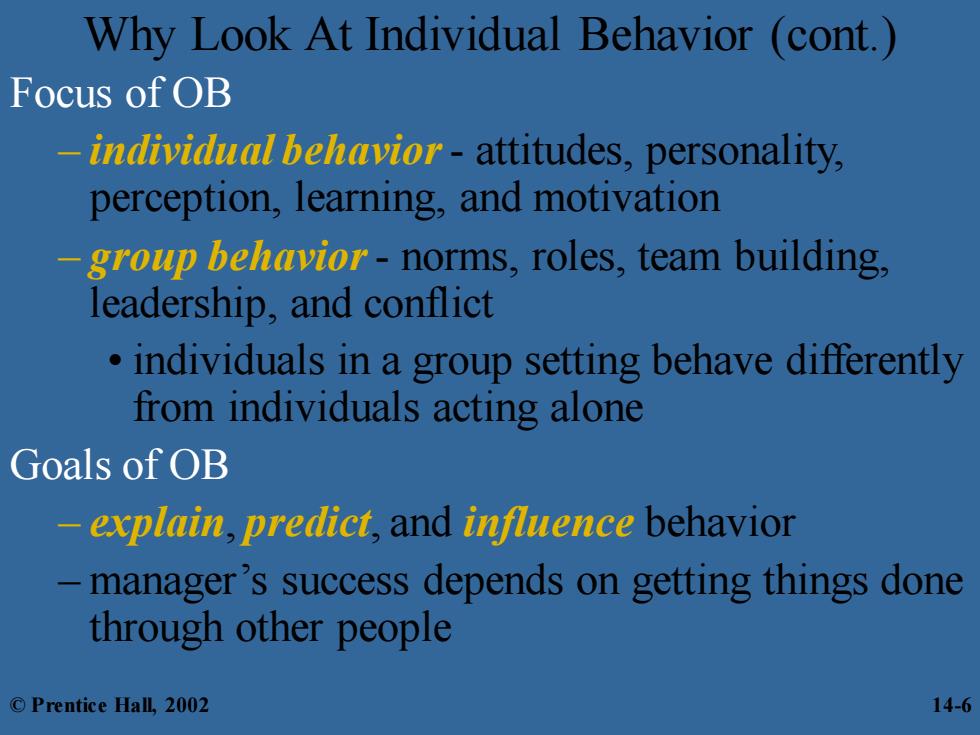
Why Look At Individual Behavior (cont. Focus of OB individal behavior-attitudes,personality, -i perception,learning,and motivation group belavior-norms,roles,team building, leadership,and conflict individuals in a group setting behave differently from individuals acting alone Goals of OB explain,predict,and influence behavior manager's success depends on getting things done through other people ©Prentice Hall,2002 14-6
Why Look At Individual Behavior (cont.) Focus of OB – individual behavior - attitudes, personality, perception, learning, and motivation – group behavior - norms, roles, team building, leadership, and conflict • individuals in a group setting behave differently from individuals acting alone Goals of OB – explain, predict, and influence behavior – manager’s success depends on getting things done through other people © Prentice Hall, 2002 14-6
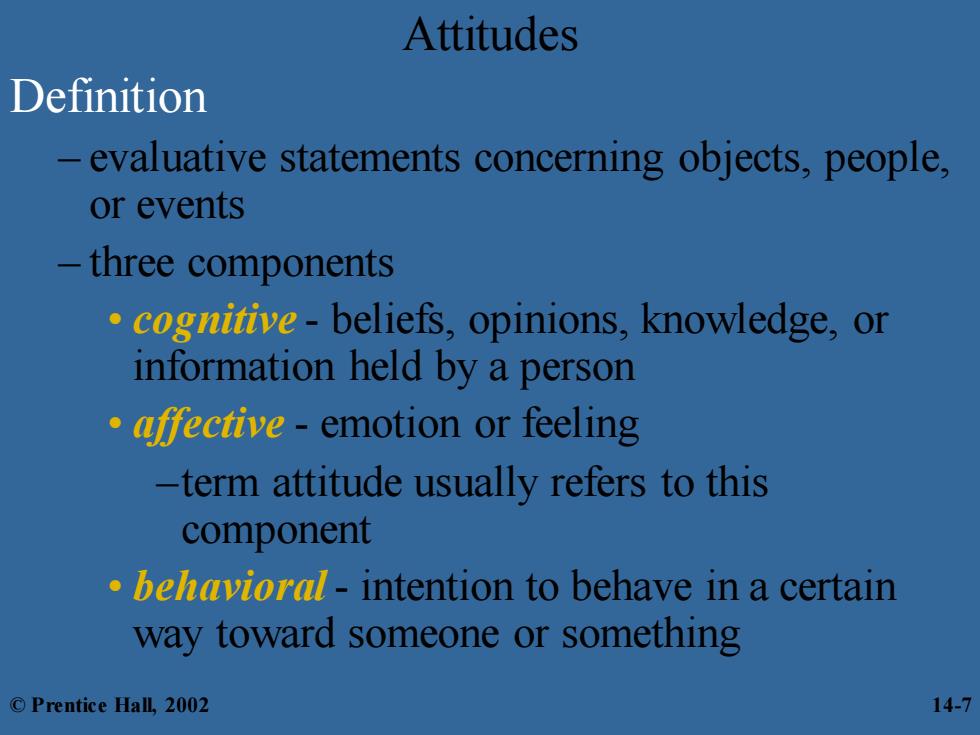
Attitudes Definition -evaluative statements concerning objects,people or events three components cogitive-beliefs,opinions,knowledge,or information held by a person ective-emotion or feeling -term attitude usually refers to this component belbavioral-intention to behave in a certain way toward someone or something ©Prentice Hall,2002 14-7
Attitudes Definition – evaluative statements concerning objects, people, or events – three components • cognitive - beliefs, opinions, knowledge, or information held by a person • affective - emotion or feeling –term attitude usually refers to this component • behavioral - intention to behave in a certain way toward someone or something © Prentice Hall, 2002 14-7
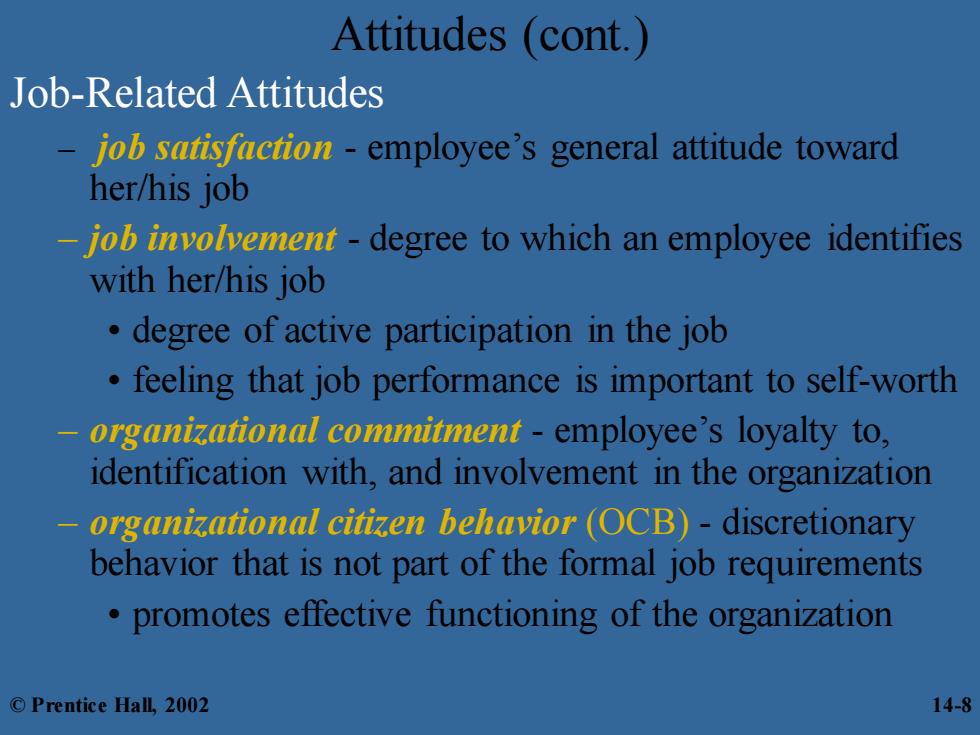
Attitudes (cont. Job-Related Attitudes job saisaction-employee's general attitude toward her/his job -job involverent -degree to which an employee identifies with her/his job degree of active participation in the job feeling that job performance is important to self-worth -organizational commitment -employee's loyalty to, identification with,and involvement in the organization organizational citizen behavior (OCB)-discretionary behavior that is not part of the formal job requirements promotes effective functioning of the organization ©Prentice Hall,2002 14-8
Attitudes (cont.) Job-Related Attitudes – job satisfaction - employee’s general attitude toward her/his job – job involvement - degree to which an employee identifies with her/his job • degree of active participation in the job • feeling that job performance is important to self-worth – organizational commitment - employee’s loyalty to, identification with, and involvement in the organization – organizational citizen behavior (OCB) - discretionary behavior that is not part of the formal job requirements • promotes effective functioning of the organization © Prentice Hall, 2002 14-8
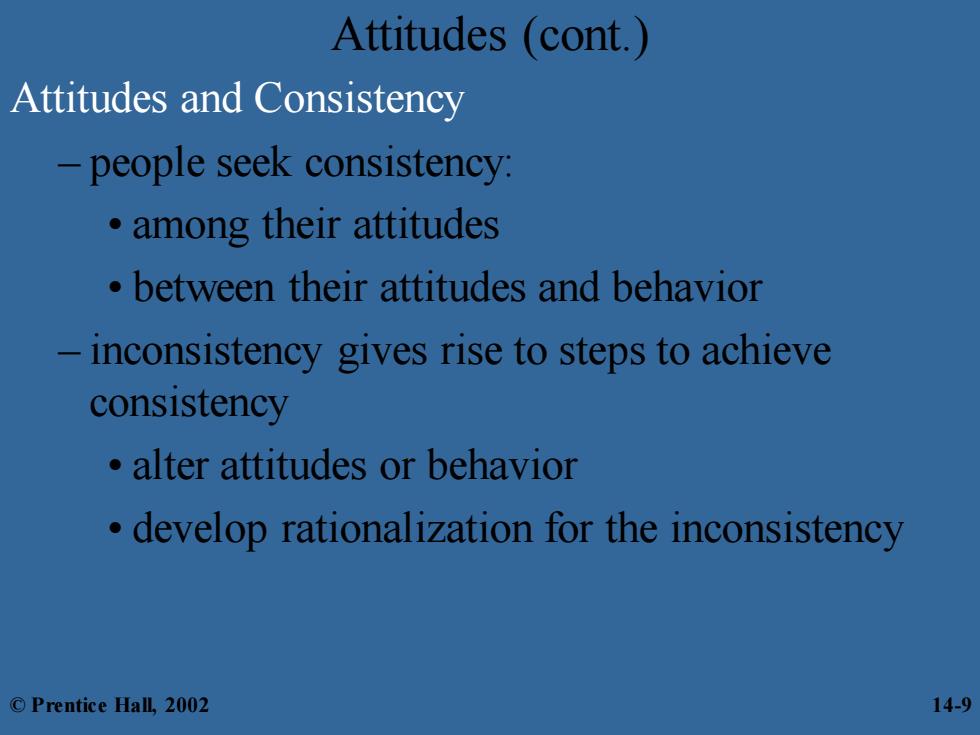
Attitudes (cont. Attitudes and Consistency people seek consistency: among their attitudes between their attitudes and behavior inconsistency gives rise to steps to achieve consistency alter attitudes or behavior develop rationalization for the inconsistency ©Prentice Hall,2002 14-9
Attitudes (cont.) Attitudes and Consistency – people seek consistency: • among their attitudes • between their attitudes and behavior – inconsistency gives rise to steps to achieve consistency • alter attitudes or behavior • develop rationalization for the inconsistency © Prentice Hall, 2002 14-9
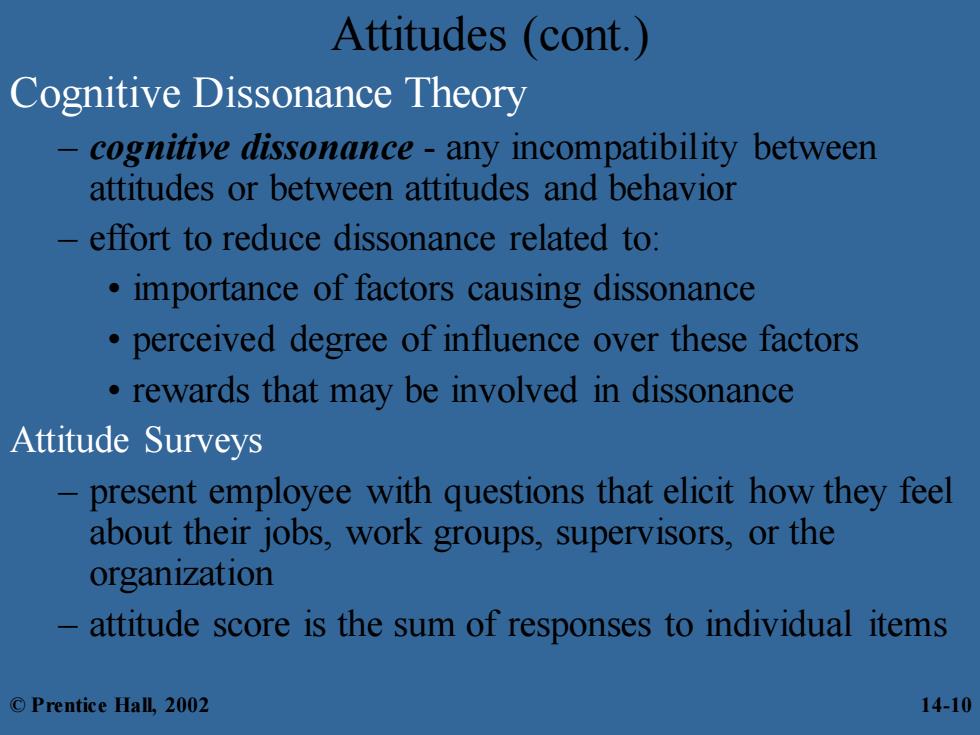
Attitudes (cont. Cognitive Dissonance Theory cognitive dissonance-any incompatibility between attitudes or between attitudes and behavior effort to reduce dissonance related to: importance of factors causing dissonance perceived degree of influence over these factors rewards that may be involved in dissonance Attitude Surveys -present employee with questions that elicit how they feel about their jobs,work groups,supervisors,or the organization attitude score is the sum of responses to individual items ©Prentice Hall,2002 14-10
Cognitive Dissonance Theory – cognitive dissonance - any incompatibility between attitudes or between attitudes and behavior – effort to reduce dissonance related to: • importance of factors causing dissonance • perceived degree of influence over these factors • rewards that may be involved in dissonance Attitude Surveys – present employee with questions that elicit how they feel about their jobs, work groups, supervisors, or the organization – attitude score is the sum of responses to individual items Attitudes (cont.) © Prentice Hall, 2002 14-10